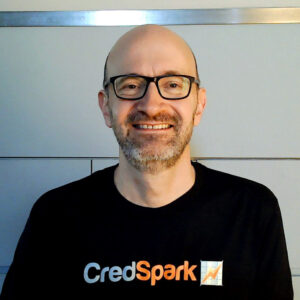Feeling Uncertain? Ask Questions.
Nobody seems to know where things are headed, but the simple act of asking questions can break the “Publishing Paradigm” and lead to better decisionmaking and outcomes.
It’s OK to admit it: You feel uncertain.
You’ve likely felt uncertain this week, maybe today, perhaps even in this moment.
What will tomorrow’s headlines be? What can you no longer take for granted? Technological, political, economic, and cultural changes are coming fast and furious. What will the world look like in 6 months or a year? What will your job, your organization, and your profession look like?
We are each, to varying degrees, allergic to uncertainty. Humans have used science to shrink the amount of uncertainty in our world, and we have our systems of belief to help us emotionally deal with the uncertainty science cannot eliminate. But despite the best efforts of our hearts and minds, we each sit uncomfortably with uncertainty every day of our lives.
The good news is that in addition to science and faith to help us deal with uncertainty on a daily basis, there’s another simple tool we’ve used for thousands of years to help us deal with uncertainty: Asking a Question.
In a dozen years of our CredSpark blog posts, we’ve returned again and again to the amazing power of a question, because it remains just as powerful as ever, if not more so. It’s something each of us can do that almost always benefits us.
Breaking the ‘Publishing Paradigm’
The last 25 years of technology—from blogs to YouTube to Twitter/X, Substack, and TikTok—have seen an explosion in content creation. Creating and distributing content out into the world, aka Publishing, used to be tightly controlled; you had to have a fairly large operation to do it and some guardrails in place to ensure a level of quality and accuracy. Today, anyone with a smartphone is a content creator.
But here’s what hasn’t changed: We’re still publishing.
- What do I mean? I mean that in 1925, 1975, and 2025, content creators have approached their work (and their audiences) largely the same way:
- I have a goal (inform, entertain, train, etc.).
- I have a story to tell.
- I create my story in some medium (article, audio, video, post, course, etc.).
- I try to get my story out to a wide audience of those who might be interested.
What’s missing in the above? The first step, which is attempting to understand the person you’re telling your story to. What do they want? What do they know? What interests them?
You Wouldn’t Monologue in a Bar.
Imagine you’re in a bar (or any room with lots of people you don’t know) and you spot someone you’d like to get to know.
Would you walk over to that person and start a 10-minute monologue about yourself?
Or rather, would you—within the first 60 seconds of introducing yourself—ask them a question?
Unless you wanted them to start looking over your shoulder for an escape route, you wouldn’t just talk at them. Instead, you’d ask questions—Where are you from? What do you do? What brought you here?—in an attempt to get to know them better, determine what you have in common, and how you can be relevant to one another.
So why on earth do creators of content—media companies, publishers, learning providers, etc.—do the equivalent of ‘talking at’ their audiences, when they’d never take such an approach while trying to get to know an actual person in real life? Why are content creators ‘digitally monologuing’ at those they’re trying to engage?
The ‘Double-Win’ of Asking Questions
Returning to that uncomfortable feeling of uncertainty in the present moment, here’s the solution: Get in the habit of incorporating questions into your content creation process. Ask what’s on people’s minds—not in an annual survey, not only after a purchase or customer support request—but during their ongoing journey and communication with your organization or brand.
What specifically do I mean? Here are just a few examples:
- Discover how MedPage Today engaged their audience of doctors with an interaction that presented ethical dilemmas.
- Learn how BookCon created a sense of community and engagement at their 20,000 person annual conference.
- See how the American Management Association leveraged a question-based interaction to launch a new professional credential.
- Read more on how L&D professionals are using science-backed learning strategies and techniques to improve corporate skills assessment.
So how does asking questions help you win? In two ways:
First, it shows your audience that you care; that you want to know them better. There may be different reasons you want to know them better, from professional development to product sales to event attendance or targeted advertising. But many of your goals for knowing them better can benefit them, not just you. Audiences crave a sense of connection. Asking questions in a conversational way showcases that you are interested in their thoughts, opinions, preferences, and more. Take it a step further and use that data to present useful and relevant content, products, services, educational material, etc. and they’ll see and appreciate the value of that connection with your brand.
Second, back to our present, anxiety-inducing moment: Asking questions of your audience can reduce your own uncertainty. There is no crystal ball for geopolitics, nor the impact of AI on the workforce; but even some incremental data gathering can help. Asking questions directly from your audience provides you with deeper insights, more actionable information, and real-time data on what people are thinking. It provides you with a more three-dimensional view than traditional cookie-based activity tracking data. You’re not just getting data. You’re getting insights and perhaps a little wisdom.
Quality information and information-based action are the keys to finding that terra firma in our fast-paced, anxiety-driven world. Where do you start? Just ask us a question.


